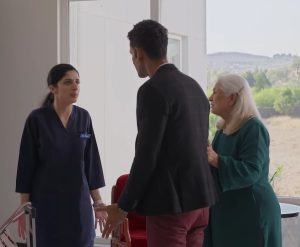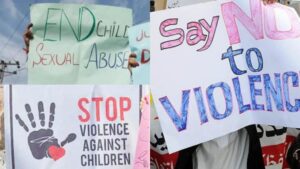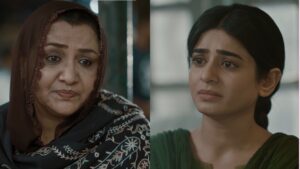The Hum tv drama ‘Jafaa’ took a gut-wrenching turn over the weekend when Zara (played by Mawra Hocane) suffers brutal abuse at the hands of her husband Hassan (played by Mohib Mirza). The drama was already applauded by social media users for tackling the subject of domestic abuse and encouraging men that there was no shame in seeking mental health resources.

Jafaa points out how domestic violence is more about male privilege and patriarchy
We feel that it is necessary to highlight how ‘Jafaa’ has brilliantly shattered the assumption that it is only poor or uneducated women who suffer from domestic violence. Often when a woman leaves her husband after suffering from abuse, she is often ridiculed by society for tolerating the suffering for so long and not being able to take a stand for herself.
‘Jafaa’ is the kind of show every Pakistani woman should watch because it brilliantly states that domestic violence doesn’t happen because of a woman’s background, but how male privilege allows men like Hassan to get second chances over and over again. Despite Zara being a privileged woman and also a doctor, she remained in the abusive situation because she was taught by her grandmother to never open up about her struggles to others. Just like the other Pakistani women, Zara stayed in her abusive marriage because she was also taught to believe that love can change a man.
But as ‘Jafaa’ has shown, no matter of whether the woman is well educated or has a free-spirited personality like Zara, domestic violence will continue to take place until a systematic change takes place that holds men like Hassan accountable.
In a similar way, I should like to link in Alia Bhatt’s movie ‘Darlings’ where she played Bhadru, a working class woman who suffers beatings from her husband. Despite her mother’s insistence that she must leave Hamza because of his alcoholism and regular abuse, Badhru insists he will change. But despite her willingness to stay, Bhadru eventually suffers a miscarriage after Hamza throws her down the stairs after he assumes she is having an affair.
Social media users applaud how ‘Jafaa’ showed no woman is at fault for leaving an abusive marriage
When the episode began airing online, social media users applauded the show for highlighting the fact that women aren’t responsible for the bad behaviors of men. It is no woman’s responsibility to endure in an abusive marriage to hope that her husband would change. So that more women like Zara out there should stop remaining silent about their trauma and seek help in others to leave.
This is a lesson for all the girls who think they can change a man. No babe, you can’t change a man who is mentally unstable and a psychopath. https://t.co/c8z2gZiE3E
— Sitara (@callmesitara12) October 12, 2024
Users applauded the actress Mawra Hocane for consistently picking scripts that were honest about the issues women faced in Pakistan.
This is probably the most powerful performance by mawra till date. And very important point raised https://t.co/zgBZ86M3V3
— no context nalka (@mahobili) October 12, 2024
We have to applaud both Mawra and Mohib for tackling a serious topic in a beautiful manner, and ensuring that audiences understand that domestic violence is a serious issue. It is never about the survivor’s background or privilege, but how the patriarchy continues to thrive over the violence and exploitation women face in their homes.








